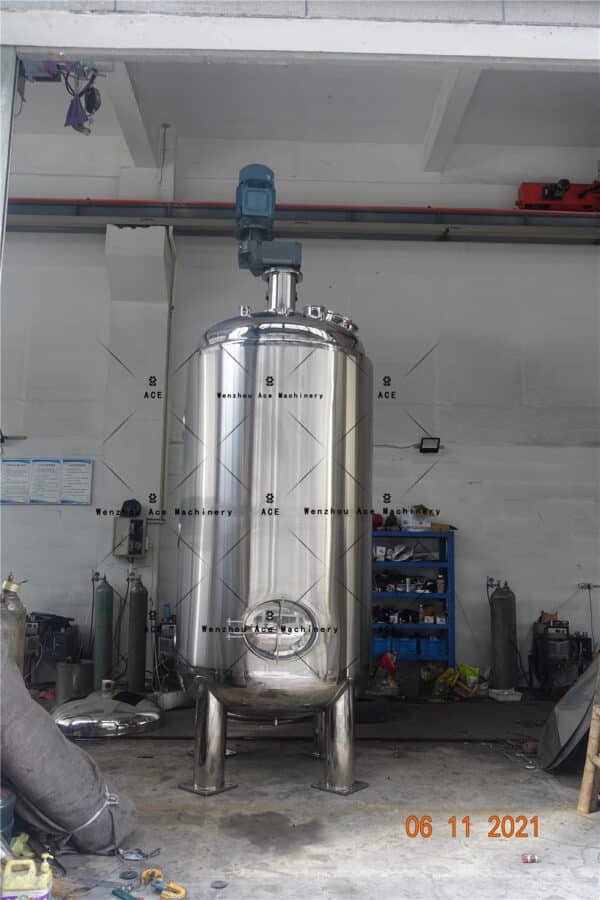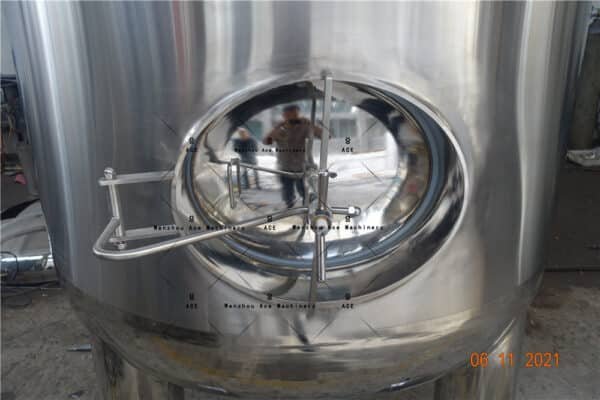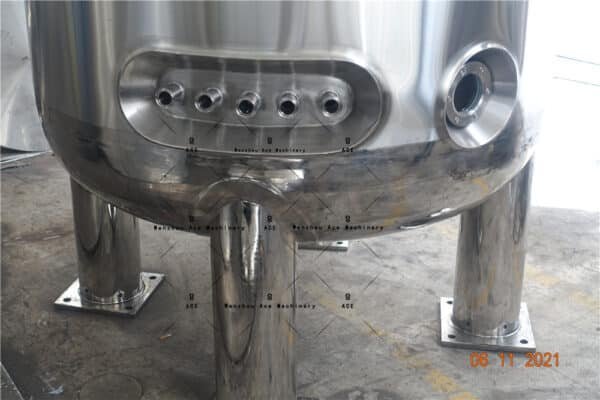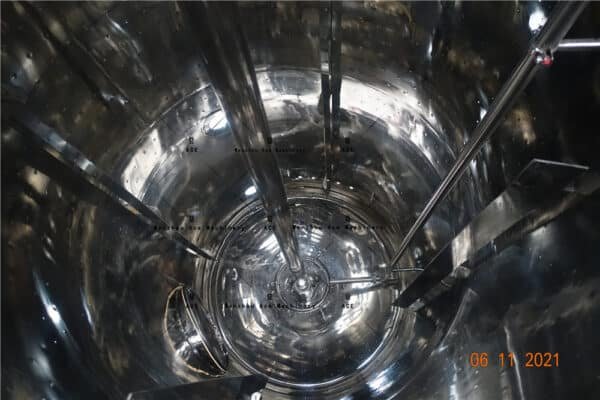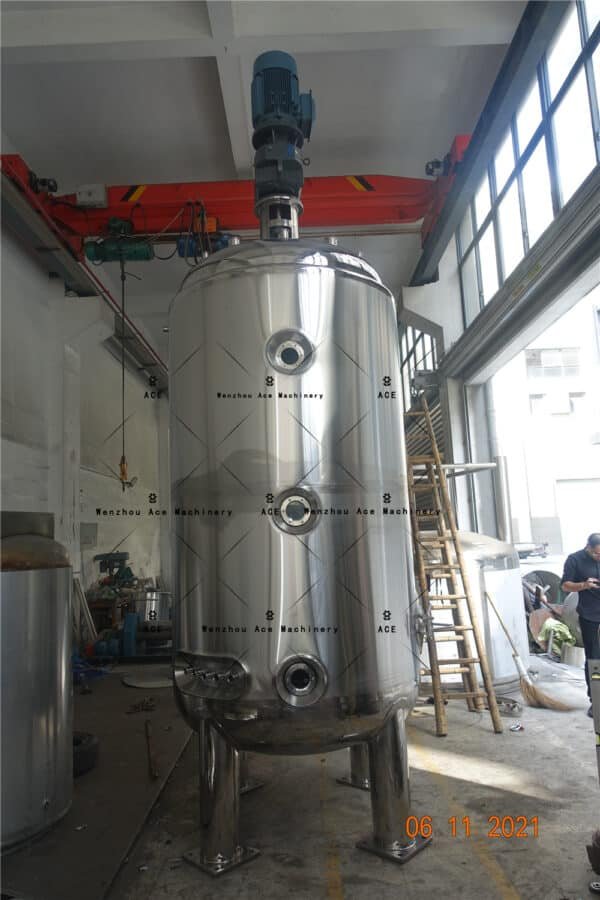Material Options: 304 or 316L Stainless Steel
In countries where bioreactors are used, the type of materials necessary for the bioreactor manufacturers impacts the strength and resistance to chemicals and other components. Our biological reactors exist in two types of high-grade stainless steel: 304 and 316L.
304 Stainless Steel
It can be used to manufacture equipment requiring high levels of resistance to corrosion. Hence, 304 stainless steels find application in various general-purpose applications. It provides reliable resistance to oxidation and corrosion in moderate environments, making it suitable for use in food processing industries or pharmaceuticals.
316L Stainless Steel
In applications where high salinity along with chlorides are present, or where there are harsh organic chemicals, 316L stainless steel is preferred. Molybdenum is present, which improves corrosion resistance, especially against chlorides and acidic bio-aggressors. Therefore, this is a much better option in marine biotechnology and chemical manufacturing.
Various Types of Agitators for Enhanced Mixing
Awareness and understanding of mixing methods and technologies are crucial, especially in the field of engineering processes, as it is important to maintain the quality of certain ingredients. Our biological reactors cater to a wide range of applications, reflected in the numerous possibilities for agitator designs such as:
Turbine Agitators
In cases of dense media, such high-shear methods of mixing are useful and required for breaking large particles into smaller parts.
Propeller Agitators
These types are most ideal for moving fluids that have low viscosity, requiring rapid distribution and mixing.
Anchor Agitators
Useful even for extremely viscous materials, so even the thickest materials would not be a problem to mix for these types.
Three-Layer Design With Heating Jacket
When aiming to prevent extreme temperature losses during a biological reaction, a three-layer jacket in a biological reactor should be implemented. The center of the jacket layer maintains the best temperature and density, creating an ideal space for biological reactions.
Heater Options: Electric or Steam
Different industries have different needs, and our electric-based heating solutions allow ample flexibility.
Electric Heating
AC-powered devices provide fast heating for our reactors, ranging in power from 1.5 kW to 55 kW, depending on other connected elements.
Steam Heating
In industries with ready access to steam, we can equip reactors with steam heating jackets. This is a practical solution for large-scale biological processes, particularly where cost and conservation of natural resources are important.
Voltage Range of 110V to 600V
Biological reactors are built with flexibility in mind when it comes to electrical power supply requirements. We offer voltages from 110V to 600V to cater to different geographic power supply norms and industrial requirements.
Applications of Biological Reactors
Biological reactors have broad application potential in several fields and industries. Common applications include:
Wastewater Treatment
Biological reactors are crucial for the biological treatment of organic waste, contributing to environmental impact reduction.
Pharmaceuticals
They are used for the growth of cells and microorganisms in manufacturing antibiotics, bacterial vaccines, and other bioproducts.
Bioenergy Production
Biological reactors are fundamental in fermentation processes, converting biological material into biofuels such as ethanol and biogas.
Food and Beverage Industry
Biological reactors play a key role in the fermentation process, integral to producing yogurt, beer, and wine.
Frequently Asked Questions (FAQ)
What is the range of biological reactors you offer?
Please contact us for particular size requirements. We offer reactors from large industrial scale to small laboratory scale models to address different production needs.
What kind of maintenance is required for a biological reactor?
Pharmaceutical and food sectors require routine cleaning and sterilization. Maintenance schedules prescribed by the manufacturer should be followed to ensure unit longevity and optimum performance.
What is the advantage of a heating jacket?
Overheating risk is quite low in biological processes, which is an advantage for temperature-sensitive processes.
When should I choose between 304 stainless steel and 316L?
It depends on the application. Generally, 304 stainless steel fits most requirements, but 316L is preferable in environments requiring better resistance to corrosion and aggressive chemicals.
Are customization options available for the reactor?
Yes, options like agitator type, material, heating source, dimensions, and other parameters can be customized according to individual requirements. Contact us to explain your needs.
Get in Touch With Us for Your Biological Reactor Solutions
We offer a variety of biological reactor options, from small laboratory reactors to large industrial units. Each can be customized to meet specific requirements, with high-grade stainless steel construction and multiple provisions for heating and mixing to suit various industrial applications. Contact us to discuss our products and services or request a quote for your next project. We are here to assist you in maximizing your biological processes effectively and productively.


